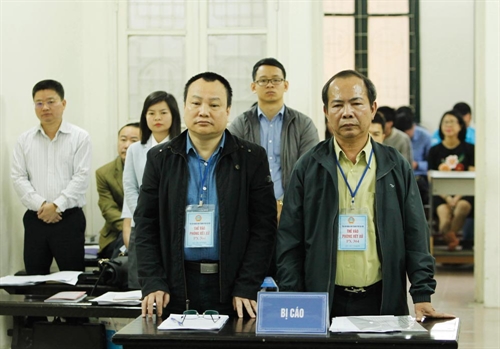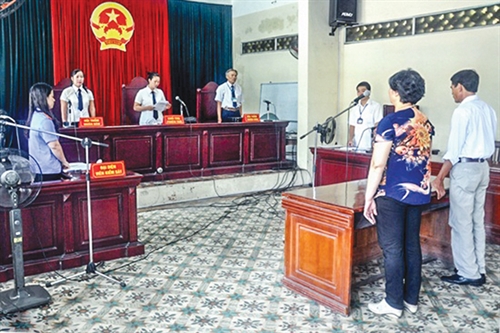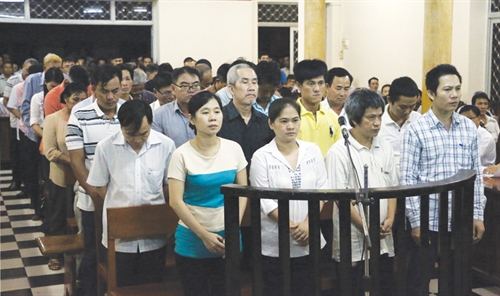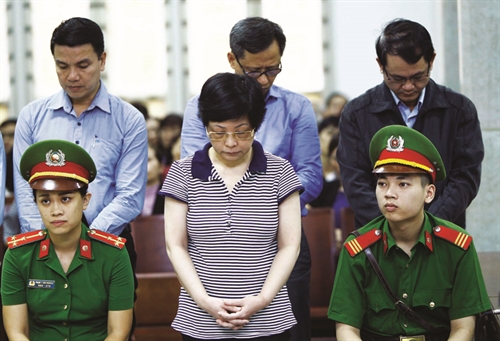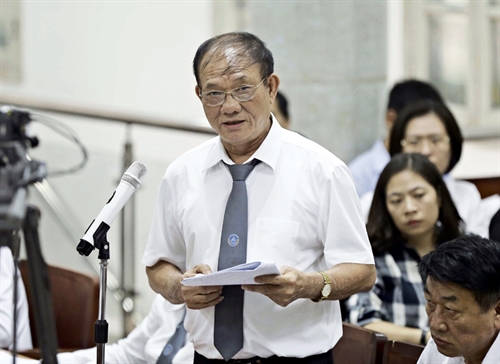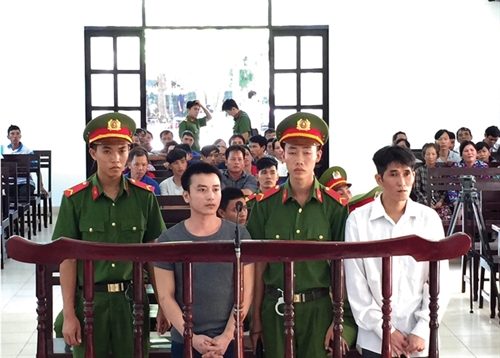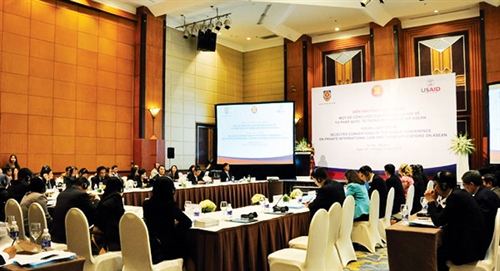The establishment of an intellectual property (IP) court in Vietnam is in sight but has yet to be completed, a deputy chief inspector of the Ministry of Science and Technology (MOST) has said.
Unlike in foreign countries where the court plays a major role in handling infringements upon IP rights, Vietnam ’s court system has not asserted its power as strongly on the matter, according to Nguyen Nhu Quynh, MOST’s deputy chief inspector.
“About 98.4 percent of the violations in Vietnam in the 2012-15 period, including online infringements, were handled by inspectors from administrative agencies,” she said.
 |
| Kon Tum province’s police officers destroy IP-infringing and smuggled products__Photo: Quang Thai/VNA |
“There needs to be an IP court in Vietnam, but we don’t know when it will be established,” she said at a conference on IP enforcement in the digital world held in Hanoi this month.
While the prospect of an IP court seems down the road, Quynh said that it is essential to have a department within the country’s judicial system specializing in IP.
The practice of electronic commerce (e-commerce) is developing rapidly in Vietnam, with total retail revenue of USD 5 billion in 2016, a drastic rise from USD 2 billion in 2013 and USD 1 billion in 2012, according to MOST. Forty-nine percent of enterprises in the country had their own websites, and 32 percent of them have established business partnerships with foreign counterparts via the internet.
Online platforms play a major role in reinforcing e-commerce, including online shopping sites and social media platforms. A survey done by the market research service Q&Me in 2017 shows that 66 percent of Facebook users in Vietnam have purchased items over the social media platform, a considerable rise from 47 percent in 2016, Quynh said.
Taking advantage of social media platforms - particularly Facebook - to do business makes it harder for inspectors to discover violators of IP rights, she said.
“Several young people are making tons of money out of their online businesses without having to have capital, just a few tricks to increase the number of ‘fans’ on their Facebook pages,” she said. “But a lot of them sell fake stuff, which is considered an infringement.”
Stronger punishments are needed to regulate the virtual business environment, she said.
Speaking on domain name disputes, Quynh advised that well-known brands, when discovering their domain names have been taken by other businesses, should contact those businesses and warn them of copyright infringements before sending legal documents and asking administrative agencies to get involved.
“A lot of the times when we conducted inspections, the ‘violators’ did not even know they had violated the regulations,” she said.
Speaking at the workshop, Tran Van Tung, Deputy Minister of Science and Technology, said that the inadequate policy system is the most challenging aspect of IP enforcement in Vietnam.
Apart from well-intentioned firms, many businesses in Vietnam are taking advantage of the legal loopholes and major brands to sell fake goods and deliver low-quality services. These firms should receive hefty punishments such as being taken to court, he added.
“It is of utmost importance to strictly handle infringements and counterfeit acts in the digital environment, otherwise we will discourage innovation,” he said. “IP enforcement is the core of protecting innovation and strengthening the applications of science and technology to the development of the country.”- (VNS/VLLF)
